Certain life situations can cause you to do things you’d never consider doing under normal circumstances — like consuming unusual food sources to survive.
What if you are faced with doing the unthinkable…Can you eat leeches? Is it even safe? Should you eat them alive (raw) or cooked?
You can eat leeches if your life depends on it, and you have no other option. While live leeches are edible, there is a risk of consumption if they are not chewed or killed before ingesting.
Read on for more detailed information on whether you can eat leeches, how and where to find them, and what risks they pose to your health.
You’ll also discover whether they have any nutritional benefits and even how to tell if you have leeches inside your body.
Table of Contents
- Can You Eat Live Leeches?
- Can You Eat Leeches Raw? Or Should They Be Cooked?
- Risks With Eating Leeches
- How To Cook & Eat Leeches
- Nutritional Content of Eating Leeches
- Where To Find/Catch Leeches
- Are Leeches Dangerous?
Can You Eat Live Leeches?
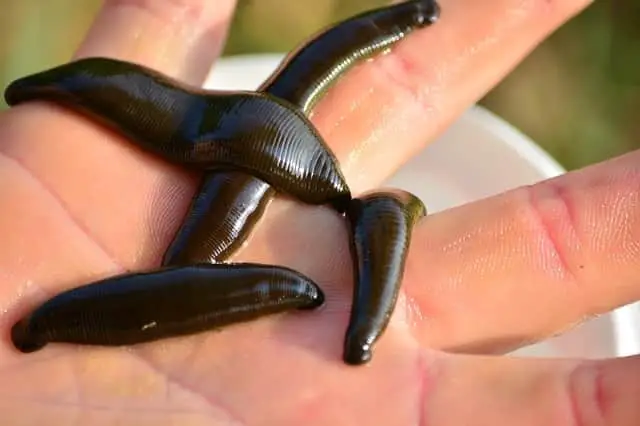
You can eat leeches. While these slimy, slug-like worms look utterly disgusting, you can feed on them when they’re alive and raw to survive. However, you need to take extra care, especially when feeding on live leeches. Chew them thoroughly to ensure they are dead before you swallow them.
Why would someone want to eat live leeches? Well, there are actually a number of reasons. What if you are trying to survive in the wilderness and that’s all you can find to eat?
What if you are in a foreign country, and its customary to consume raw leeches as part of their culture?
Or, what if you are just curious, and trying to eat a 100% natural, raw-paleo diet?
Can You Eat Leeches Raw? Or Should They Be Cooked?
You can eat leeches raw, though you might want to cut off the head first to prevent it from anchoring itself on your throat as it goes down. But to avoid the risks associated with consuming leeches, it’s better to cook them first.
Besides, cooking leeches makes them more palatable.
Still, eating raw leeches might not be a good idea since they contain parasites, viruses, and bacteria from previous blood sources within their digestive tract. These harmful organisms can survive inside their hosts for months and could be transmitted to humans.
Risks With Eating Leeches
Eating leeches can pose risks to your health. This is because:
- They might latch on to body cavities. Leeches tend to attach themselves to all sorts of unusual places in the body. They can enter your nose, ear, and urinary tract.
- They aren’t easy to chew. Chewing live leeches can be challenging because they keep trying to hook themselves to the inner parts of your mouth (yuck!)
- They can make you gag. Eating raw leeches isn’t a pleasant experience. Rather, it’s quite nauseating and can cause you to gag and even vomit. Leeches feed primarily on the blood of mammals. Therefore, crushing their bodies results in your mouth filling with blood, which could lead to even more gagging.
- They could be life-threatening. If you swallow a live leech, it could latch inside your throat and start sucking your blood. Leeches usually gorge themselves on their victim’s blood, taking up to 10x their body weight in a single feeding. So, if you cannot get it out of the back of your throat, it can swell until it blocks your airway, causing suffocation and, in worst cases, death.
From the above, it’s apparent that eating leeches is an extreme action to be taken when you’re out of options and desperate. But once you’re out of danger, use your survival skills to find a more palatable, beneficial, and safer food alternative.
How To Cook & Eat Leeches
If circumstances force you to feed on creepie crawlies, then you’d better make them as tasty as you can. Besides, making leeches more flavorful means that you avoid the potential risks of eating live ones as well as the unpleasant experience.
To cook leeches, crush them up completely or grind them into a paste, then fry them. Cooking leeches ensures they’re dead before you swallow them. It also improves their taste drastically since you can now add flavor.
For instance, you can forage edible plants like wild greens and herbs to disguise or enhance the flavor. You might even find yourself forgetting exactly what you’re eating.
Swallow them quickly and get them down!
Nutritional Content of Eating Leeches
Believe it or not, leaches do have nutritional benefits, mainly protein. However, if the leech had fed somewhat recently, its blood could also contain minerals such as iron. Unfortunately, leeches don’t possess much carbohydrate content, so you might not get much energy.
Still, feeding on leeches will sustain you. If you have no other food, they can make a quick survival snack while you figure out your next source of nutrition.
Where To Find/Catch Leeches
You can find leeches practically everywhere, but they thrive mainly in the tropics and sub-tropics. While most species live in the water, others live exclusively on land. As such, you can pick up leeches wading through a pond, or they latch onto you when hiking through thick grassy vegetation.
Aquatic leeches are common in many places, but dry land leeches are mostly found in South America, Southeast Asia, India, and the Pacific Islands. You’ll find aquatic leeches inhabiting shallow freshwater habitats, marine environs, or moist soil.

These natural organisms feed on blood hence typically attach themselves to your skin. In most cases, many of them do so simultaneously.
Leeches have sharp teeth, which they use to slice through the skin, plus a chemical in their saliva that stops the blood from clotting. The saliva also features an anesthetic that numbs your skin, meaning you don’t feel a thing as they bite.
Leeches sense their prey through:
- Body heat
- Sweat and oil excretions
- Shadows and disturbances in the water
On land, leeches hang around foliage edges, on grass and leaves. They can detect your presence through the carbon dioxide you exhale. These aggressive hunters first latch onto your clothes, then crawl around to look for exposed skin to attach to and begin feeding.
Once they bite, removing these bloodthirsty worms can be quite tricky since they clamp down on your skin with their sharp teeth.
Are Leeches Dangerous?
Leeches aren’t generally dangerous unless you’re allergic to them. If you’re out hiking and get a single leech bite, there’d be no cause for alarm. However, if many of them bite you, you have an increased risk of infection, fever, or illness.
But in spite of the above, leeches secrete proteins and peptides (anticoagulants) that are useful in thinning the blood and preventing it from clotting.
This helps boost circulation, breaks up blood clots, and prevents tissues from dying. The leeches cause tiny, Y-shaped wounds that heal without leaving behind any scarring.
Leeches In Modern Medicine
Historically, the use of leeches as a form of medicine or leech therapy was rather common. People collected Hirudo medicinalis, a medicinal leech for bloodletting or to treat problematic prostates. Bloodletting entailed draining blood from an individual to minimize swelling and heal wounds.
More recently, leeches have been used to ensure that veins continue working correctly after microsurgery, without distending or overfilling. They’re also useful in plastic surgery, treating varicose veins, and where a patient risks limb amputation because of diabetes side effects.
Thanks for reading!
You May Also Like: Can You Cook Out Of A Tin Can?
- Neem Oil Deer Repellent: Does It Really Work?

- Is It Okay To Burn Bark In a Wood Stove?
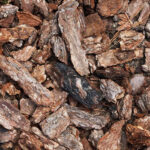
- Do Deer Eat Morel Mushrooms?
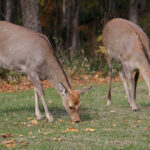
- How To Properly Dispose of Wood Stove Ashes (Safely!)
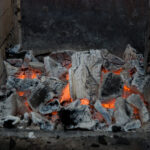
- Is Fatwood Safe for Wood Stoves? Here’s What You Should Know
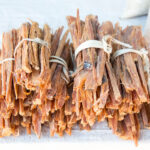
- Is Beaver Good to Eat? You May Be Surprised!
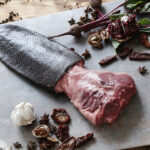
- Is Bread Bad For Deer? Here’s What You Should Know

- Are Roosters Good to Eat?
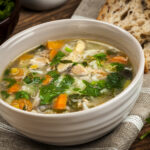
- 3 Easy Ways To Tell If Your Wood Stove Is Leaking

